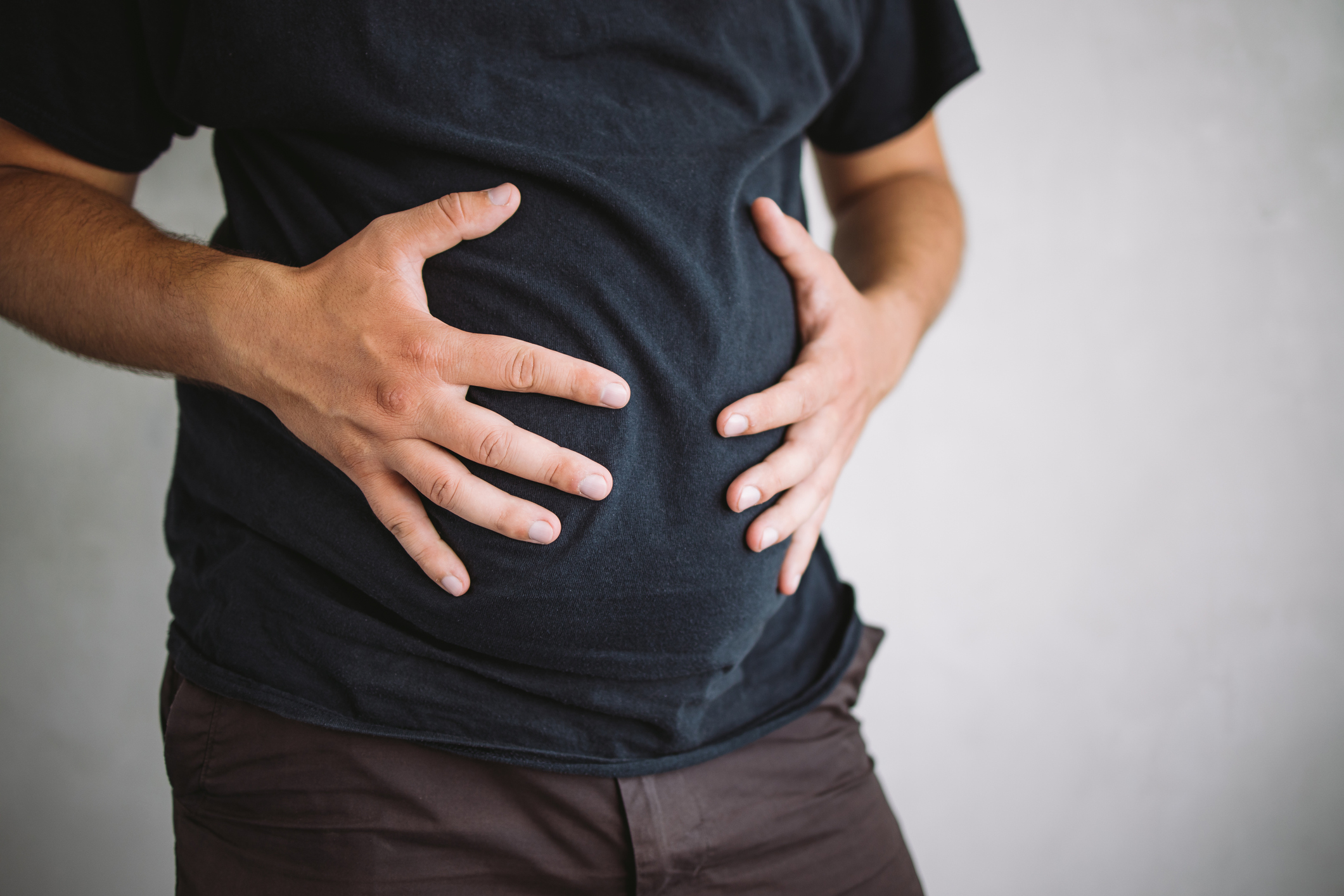Get Easy Health Digest™ in your inbox and don’t miss a thing when you subscribe today. Plus, get the free bonus report, Mother Nature’s Tips, Tricks and Remedies for Cholesterol, Blood Pressure & Blood Sugar as my way of saying welcome to the community!
Men should lose the ‘spare tire’ to lose risk for prostate cancer

Visceral fat. Belly fat. “Spare tire.” They all mean the same thing, and they’re all deadly.
Carrying excess fat around the midsection raises your risk of heart disease, diabetes, metabolic disturbances, dementia and, in women, breast cancer.
Now, at least two recent studies have connected visceral fat with prostate cancer. Not just prostate cancer, but the advanced kind that normally proves fatal.
While the reason for this connection is still unclear, the numbers don’t lie. The more visceral fat a man carries around his midsection, the greater the chance he will die of prostate cancer.
But before we get into the research, there’s one important concept you need to understand.
The difference between visceral fat and other body fat
That “spare tire” fat is different from other body fat in some very important ways that may partially explain its connection with cancer.
Subcutaneous fat is deposited under the surface of the skin. It’s the fat you can “pinch an inch” of. It insulates internal organs and protects them from extremes in temperature. We accumulate subcutaneous fat by eating fatty foods.
Visceral fat, on the other hand, is deposited deep inside, around the viscera, or internal organs, when we eat carbohydrate-rich foods and do not get enough physical activity. Even a relatively lean person can carry visceral fat in the midsection.
This visceral fat wreaks havoc with your hormones and produces inflammatory cytokines that raise your blood pressure and put you at risk of coronary heart disease and stroke.
One long-term study showed that visceral fat secretes a substance known as retinol-binding protein 4 (RBP4), which is also associated with a higher risk of cardiovascular disease.
Two studies that link belly fat and fatal prostate cancer
Between 2002 and 2006, 1,832 men were tested to determine the exact location of their body fat, as well as their body mass index (BMI) and waist circumference. The men were then followed for over a decade.
Of these men, 172 developed prostate cancer, with 43 of those cases considered aggressive cancers (very likely to spread). 41 had advanced cancer when they were diagnosed, and 31 men had died of prostate cancer by 2015.
And for every standard deviation increase in visceral fat, the likelihood of dying of prostate cancer rose by 37 percent.
A second study, published in September 2020, confirms this link between carrying visceral fat in the midsection and the risk of death from prostate cancer.
In this study, scientists from the University of Oxford followed the health of 218,225 men for almost 11 years. All were cancer-free when they entered the study.
During that 11-year period, 571 men died of prostate cancer. Those in the top 25 percent for waist circumference were 35 percent more likely to die of prostate cancer than men in the bottom 25 percent.
Eating and exercising to control belly fat and live longer
In the Oxford University study, body mass index (a weight-to-height ratio) was not found to be predictive of fatal prostate cancer.
However, Dr. Aurora Perez-Cornago, lead author of the University of Oxford study, has this to say:
“A high BMI increases the risk of other diseases, including other types of cancer, so people should consider the implications of excess body fat wherever it is found in the body.”
To that end, here are some recommendations:
- Eat high-fiber foods every day. Studies show that foods with soluble fiber can reduce belly fat. These include flaxseed, Brussels sprouts, avocados, legumes and blackberries.
- Avoid foods with trans fats. Foods like margarine, frozen pizza, baked goods and fast food are on this list. Read ingredient labels carefully. Partially hydrogenated oils are the primary source of trans fats.
- Eat protein. Meat, fish, eggs, dairy and beans help you feel full. Eat fatty fish like salmon and sardines every week. The omega-3 fats in these fish could help reduce visceral body fat.
- Stop drinking fruit juice. It contains just as much fructose as some sweetened beverages. Choose sparkling water or unsweetened iced tea instead.
- Quit diet soda. A study at The School of Medicine at The University of Texas Health Science Center at San Antonio found that the more diet soda you drink, the more you risk inflammation from visceral fat.
As far as exercise goes, make sure you’re including both aerobic exercise and strength training in your exercise routine.
Editor’s note: Discover how to live a cancer prevention lifestyle — using foods, vitamins, minerals and herbs — as well as little-known therapies allowed in other countries but denied to you by American mainstream medicine. Click here to discover Surviving Cancer! A Comprehensive Guide to Understanding the Causes, Treatments and Big Business Behind Medicine’s Most Frightening Diagnosis!
Sources:
Difference between visceral fat and subcutaneous fat — DifferenceBetween.com
Men with larger waists more likely to die of prostate cancer — Eureka Alert
Body Fat and Your Risk of Dying of Prostate Cancer — Prostate Cancer Foundation
The dangers of belly fat — NY Times












